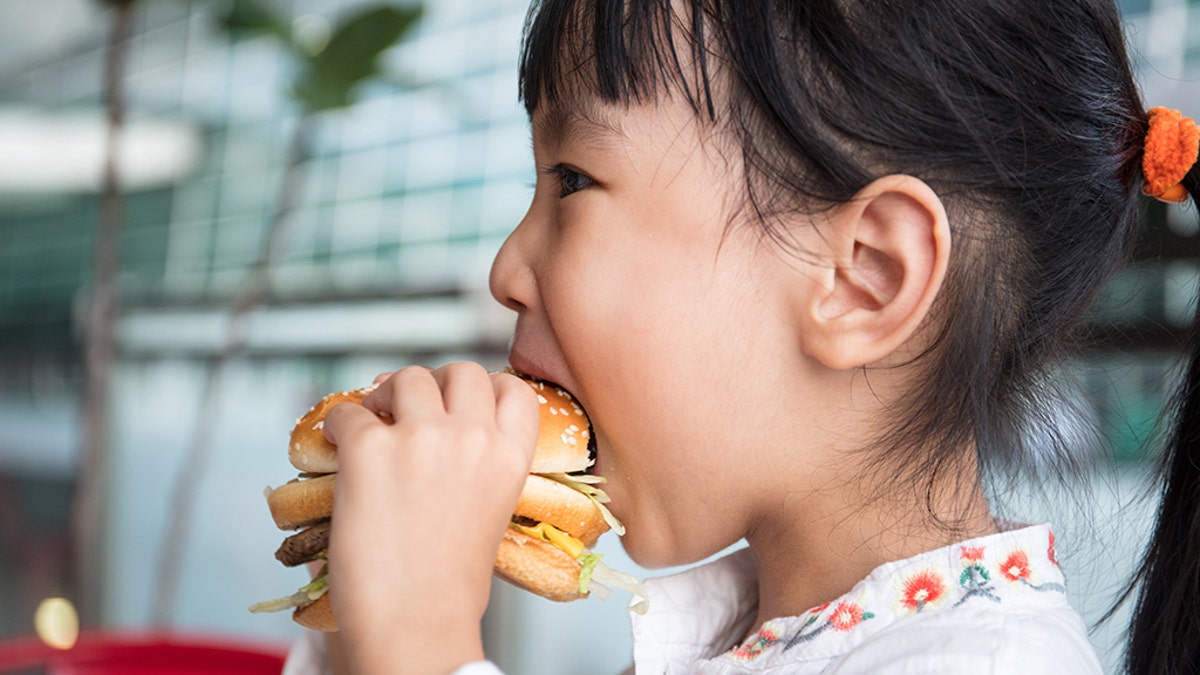McDonald's issues mask mandate for customers
Customers will be required to wear face coverings inside all U.S. locations; Fox Biz Flash: 7/24.
Kids are eating even more fast food -- and the coronavirus pandemic may continue to make diets worse.
As much as 13.8 percent of children’s daily calorie intake between 2015 to 2018 came from meals like burgers, fries, chicken nuggets and other fast food items -- up from 12.4 percent between 2011 and 2012, a new report from the Centers for Disease Control and Prevention found.

Kids are eating more fast food than they were several years ago. (iStock)
The study looked at data from children between ages 12 and 19 and found kids began getting more of their calories from fast-food meals as they got older, suggesting, perhaps, that unhealthy eating habits early on can shape negative diet behavior as kids grow.
CORONAVIRUS INFECTS 44% OF SENECA FOODS EMPLOYEES AT WISCONSIN PLANT
The report, conducted by the CDC’s National Center for Health Statistics, found fast food comprised 11.5 percent of the daily calorie intake for kids aged 2 to 11 while those aged 12 to 19 received 18 percent of their diet from fast food.
What’s more, the report also found that Black and Hispanic adolescents consumed more calories from fast-food meals than White youths.
IN-N-OUT BURGER SITE OF COVID-19 OUTBREAK IN OREGON
The uptick in fast-food eating among American youths could be what is contributing to the growing obesity epidemic. Obesity impacts almost 18.4 percent of kids in the U.S. aged 6 to 11, and 20.9 percent of kids between the ages of 12 to 19, according to the CDC.
And the coronavirus pandemic could be making eating habits even worse. With the uncertainty surrounding going back to school, kids will likely be at home more and exercising less without access to gym classes, particularly for kids living in cities.

